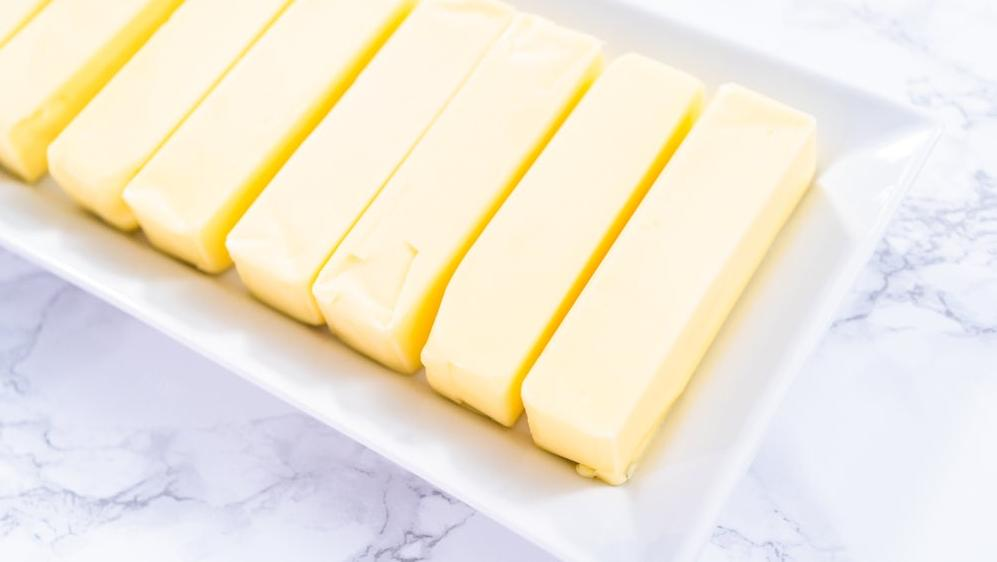Factor This Missing Step Into Your Baking Prep Time
Trust us: You don't want to mess with cold butter or eggs.
You might enjoy cold cake, but baking with cold ingredients is another matter entirely. Baking is a science that leaves little room for error—and baking with ice-cold butter or chilly eggs leaves your final product in the hands of a wrathful God. There are a few reasons for that; first, room-temperature ingredients bond together more easily, creating a smooth, uniformly textured batter and a fluffy, properly emulsified baked good. Cold ingredients, on the other hand, can create dense baked goods and chunky frosting. (Fortunately, we've got an easy fix for the latter.)
Alright, so: We know room temperature ingredients are important. But how long does it take common baking ingredients to warm to room temperature without taking shortcuts?
Butter: About an hour
Ah, butter, our fickle friend. Depending on the temperature of your kitchen, it can take refrigerated butter anywhere from 30 minutes to a full hour to soften to room temperature. (Some baking bloggers recommend waiting up to two hours, but I've never in my life seen a stick of butter take two hours to warm to room temp.) If you're working in a very hot kitchen, check in with your butter around the half-hour mark.
You can use a digital thermometer to check the temperature of your butter, which should be between 65 and 70 degrees Fahrenheit when it's ready. But you certainly don't have to—all you have to do is give it a gentle poke. When a recipe calls for room temperature butter, you want butter that is slightly softened but still cool to the touch. No melty edges, no greasy texture—just a firm bit of butter that still holds it shape, but yields to a poke.
You can microwave your butter to warm it faster, but I don't recommend this method since butter melts so suddenly. One minute, you're working with a firm stick; the next, you've got a ruined puddle on your hands. Instead, if you'd like to speed thing up, you can cut your butter into 1-inch cubes. Cubed butter will warm a bit faster than whole sticks of butter.
Eggs: 30 minutes
Cold eggs are a bad influence on room-temperature butter. Mixed together, the cold eggs will stiffen the butter slightly, creating a chunkier batter. Room temperature eggs don't have this problem; they're also much easier to whip up into a gorgeous froth. Fortunately, eggs warm to room temperature quickly. Generally, you can set your eggs on the counter about a half hour before you bake. By the time you're done prepping your mise en place, the eggs should be good to go.
Quick note: if you're planning to separate your eggs, do that while the eggs are still cold. Room-temperature yolks tend to make a mess.
Milk: About an hour
If your recipe calls for milk, buttermilk, yogurt, sour cream, or any of their dairy brethren, leave 'em on the counter with the butter for about an hour. Like I mentioned above, you'll want to keep an eye on dairy ingredients if you're baking in a smokin'-hot kitchen. Otherwise, an hour should be the sweet spot.
